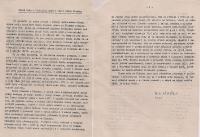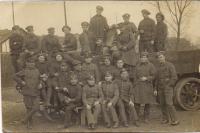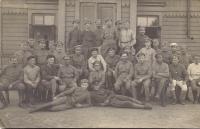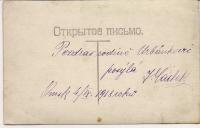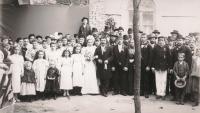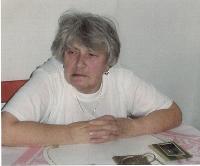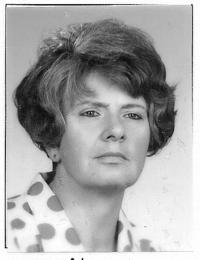“My grandfather Karel Urbánek was an older brother of the historian Rudolf Urbánek, who was born in 1877. They were born in Slaný in a family of eight children. Rudolf went to study at the Faculty of Arts at Charles University in Prague after he had graduated from grammar school, and Karel learnt the butcher’s trade in the family shop in Fortenská Street n. 43. In spite of their different professional careers, the brothers had a close relationship, and they kept in touch through letter-writing. While living abroad, my grandfather maintained contacts with other friends from Slaný. Pharmacist Stejskal, who owned the pharmacy on the town square, stayed in grandpa’s house throughout the year. He liked to remember the stay in Siberia, and he always talked to me about it with great interest. I don’t remember the precise name of the company where Karel Urbánek worked, but it was probably the Moravian Agrarian and Industrial Bank. As a butcher by profession, he started a business, trading sheep intestines and sheep tallow. He was purchasing large herds of sheep from Mongolia in bulk. The sheep were of lower quality, though. He hired herdsmen who were herding the sheep on the Mongolian plains where they were grazing. Before they reached Ulaanbaatar, they became ready for slaughter. It was a special breed of sheep, raised for its tallow, which was an important product at that time. Tallow was used for making candles, soap, and similar things. He would also export sheep intestines to Hungary where they were used for production of Debrecen sausages. When the recipe for the sausages became known, in the first decade of the 20th century the European demand for sheep intestines increased so much that his business was thriving. The family lived permanently at the Baikal, since it was close to Mongolia from there. Grandpa met a sixteen-year old businessman’s daughter from Austria, Berta Weber, in Constantinople, and he married her when he was thirty-five. They lived in the Galata neighbourhood, where many other businessman from Europe, mostly Catholics, lived. A Catholic church was even built there. (The attached photograph of Karel Urbánek and Berta Weber was taken in front of this church in the Galata neighbourhood – ed.’s note). Aunt Pavla was born in Galata, and so was my father, probably, but the other children, Karel and Berta, were born in Sludjanka, where the family later moved. Grandma ran a bakery, a butcher’s shop and a confectioner’s shop there. The family lived there until the October Revolution, but grandpa was mostly away on business. He would stay at home just two times a year or so. He became sick during one of his business trips in Romania, and he died in 1920."

